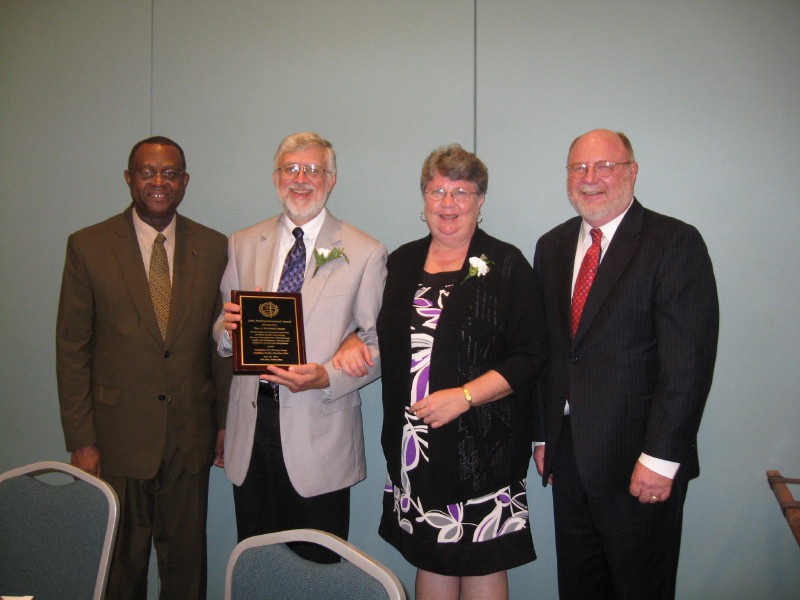On June 24, NC Council of Churches Executive Director George Reed received the Luke Mowbray Award presented by the American Baptist Churches USA. His remarks from the presentation are below.
The national honor is given to an individual for his or her outstanding contribution to the cause of advancing ecumenism either through sustained performance or special achievement. George is the 19th Mowbray recipient. Look for video of the presentation to be posted soon.
Remarks upon Acceptance of the Luke Mowbray Award
American Baptist Churches USA Biennial
J. George Reed
I am indeed honored and humbled by this award and, Jonathan, by your generous remarks about me. I’m glad that both my spouse Susan and my pastor could be here to hear what you said.
I want to express my deep appreciation to the Mowbray family and to the American Baptist Churches for having this award not only as a way of remembering the life and work of a great Baptist but also as a way of affirming some of us who are working in what is at times a difficult area. I’ll come back to that.
As most of you know, and certainly any of you who have received a significant award like this, it is almost never just about the person whose name is on the award. So I want to acknowledge two great ecumenical organizations I’m privileged to be associated with.
First, Pullen Memorial Baptist Church in Raleigh, where my wife and I are members. Pullen is probably best known as a champion of justice for all, but it has also long been a great bulwark of ecumenism. One of its former pastors, Edwin McNeill Poteat (no stranger to American Baptists) was a leader in the creation of the NC Council of Churches, served on the Worship Committee of the National Council for many years, and composed a hymn [tune: Oikoumenikos] which opened the 1948 meeting of the World Council. When the NC Council of Churches decided to accept individual congregations into membership in 1949, Pullen was in the first group to join. It is today made up of many people who have come to us from other denominations, and it has an ecumenical style of worship with which many resonate.
I am grateful to Pullen’s ABC Committee, which nominated me for this award; to fellow Pullenites, Pastor Nancy Petty and Karla Oakley, for being here tonight; and to the congregation for the strong support it gives me in my ecumenical ministry.
Second, of course, is the North Carolina Council of Churches, today made up of 27 judicatories of 18 denominations, plus eight congregations which joined when their judicatory was not a member. We have just completed our 76th year in existence, promoting and modeling Christian unity by bringing people together across the lines of denomination and race which have too long divided us. At the time of our founding, one of the primary issues bringing together white church leaders was their shared opposition to segregation – probably not a majority position in white Christian churches in North Carolina in 1935. Today, we have work – still not universally popular – focused on immigration, care of creation, health and healthcare, peace, sustainable agriculture, and a progressive legislative agenda. I’m grateful to our Board and to the wonderful staff with whom I work.
But these are not entirely happy days for ecumenical organizations in the conciliar movement. Many of the denominations which have formed our core are seeing declines in membership, in youthful membership, and in funding, and that spills over directly to councils of churches. Our work is as important as ever – perhaps more so with the fracturing of our society into many factions and with a political climate that is not friendly to the vulnerable people Jesus called his “brothers and sisters.”
So I close with this plea to you – that you continue faithful in the work for Christian unity; that you continue to bring people together across lines of denomination, race, and ethnicity; and that you continue to use all the influence you have in all the decisionmaking venues where you find yourselves to help sustain the work of councils of churches and the other organized forms of ecumenical ministry in our midst.
Thank you. Thank you so very much.
— Aleta Payne, Development and Communications

